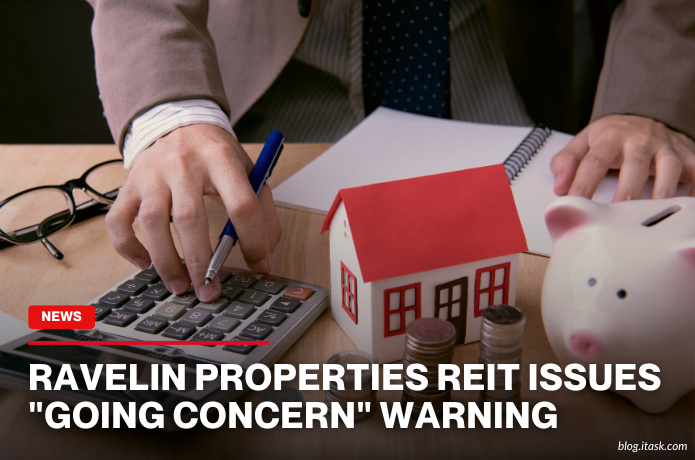Ravelin Properties REIT Issues "Going Concern" Warning
Ravelin Properties REIT Issues "Going Concern" Warning

Ravelin Properties REIT, a Toronto-based real estate investment trust, has issued a serious warning that it may not be able to continue operating unless it secures a new financial deal. In its first-quarter report for 2025, the REIT said it is in active talks with G2S2 Capital and other lenders to finalize a "Recapitalization Plan." But no agreement has been reached yet, and the company admits that without new funding, it could fail to remain a viable business — a concept known as a “going concern.”
This warning is not entirely new. In late 2023, Ravelin (formerly Slate Office REIT) began selling off properties. By mid-2024, it had defaulted on key loan terms. It also ended its external management agreement with Slate Asset Management and rebranded under new leadership, led by CEO Shant Poladian. By March 2025, it had combined more than $528 million in debt from key lenders, including G2S2 and RBC, and secured a temporary six-month forbearance deal — a kind of breathing room to finalize its financing strategy.
Despite these financial struggles, the company has shown some signs of stability on the operations side. In the quarter, it signed or renewed leases covering over 264,000 square feet at rental rates about 4.6% higher than before. Occupancy held steady at roughly 76.7%, nearly matching the 76.8% seen in the previous quarter. The REIT also had $22.6 million in liquidity at the end of March, made up of $14 million in cash and $8.6 million tied to properties.
Still, its financial picture remains uneasy. The REIT is currently in default on major debt agreements, including a revolving credit line, several mortgages, and its convertible debentures. These breaches triggered cross-default clauses that worsened the situation. As the firm negotiates with lenders, it is seeking revised terms, extended payment timelines, or alternative arrangements.
In March, G2S2 Capital bought nearly $600 million of Ravelin’s secured debt — including $233 million under one credit deal and $295 million in loans sold by RBC — while offering a six-month pause on payments. George Armoyan, chair of Ravelin’s board and head of G2S2, described the move as a significant step toward finding a long-term solution.
But the clock is ticking. If Ravelin fails to reach a recapitalization agreement, its auditors have already raised questions about the REIT’s ability to continue as an operating concern. At that point, its assets may need to be sold off, its units could lose value, and its stock might even be delisted. For now, Ravelin appears to be walking a tightrope. Its leasing performance and some cost savings provide hope, but the financial terms must be finalized soon. Otherwise, the company risks crossing a line that could change its future.
